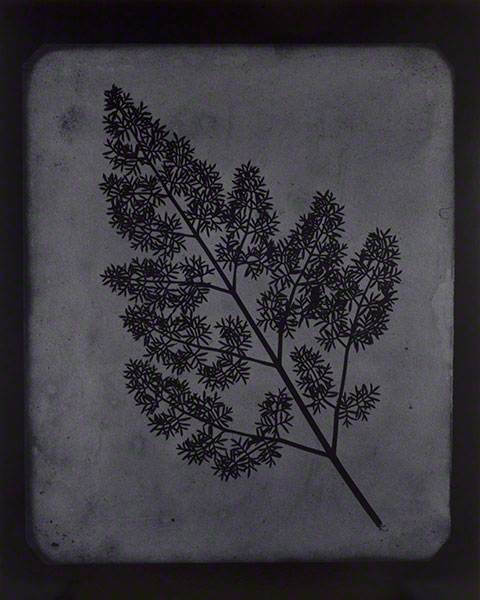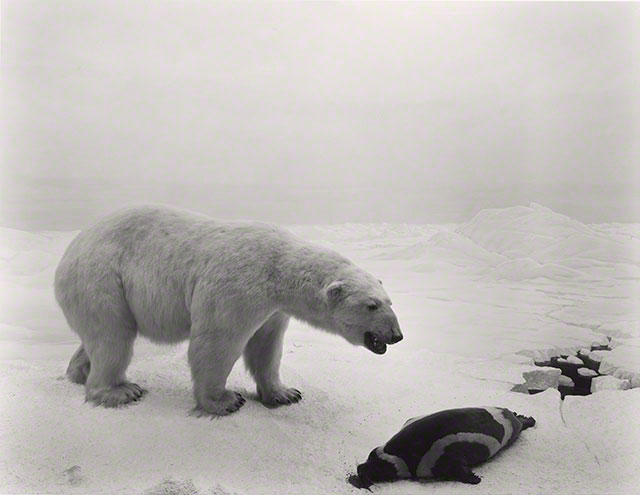Hiroshi Sugimoto: Past Tense
February 4–June 8, 2014 at the Getty Center
Since the mid-1970s, Hiroshi Sugimoto has used photography to investigate how visual representation interprets and distills history. This exhibition brings together three series by the artist—habitat dioramas, wax portraits, and early photographic negatives—that present objects of historical and cultural significance from various museum collections. By photographing subjects that reimagine or replicate moments from the distant past, Sugimoto critiques the medium's presumed capacity to portray history with accuracy.

Dioramas
Sugimoto first encountered the elaborate animal dioramas at the American Museum of Natural History after moving to New York in 1974 and began to focus his camera on individual scenes shortly after. Omitting the didactic materials surrounding each display, these works heighten the illusion that the animals were photographed in their natural habitats. While each photograph appears to be a candid moment captured by an experienced nature photographer, the subjects depicted will hold their poses indefinitely.

Portraits
Posed against pitch-black backdrops and framed by the camera in a manner alluding to old master portrait-painting traditions, Sugimoto's subjects were captured with a nine-minute exposure that illuminates the finely modeled expressions and the sumptuous costumes. These life-sized photographs record likenesses that have been filtered through multiple reproductions of the original sitter. The source material for Queen Victoria's likeness is taken from a photograph of the royal from the 1890s, around the time of her Diamond Jubilee celebration.

Photogenic Drawings
In 2007 Sugimoto visited the J. Paul Getty Museum to study the earliest photographs by William Henry Fox Talbot in the collection. After photographing some of Talbot's photogenic-drawing negatives, he produced large-scale prints and colored them with toning agents to replicate the hues of the paper negatives. The scale of the enlarged prints reveals the fibers of the original paper, which create intricate patterns embedded in the images. These works connect the artist intimately to Talbot and the origins of photography.

This exhibition is supported by the Japan Foundation.
